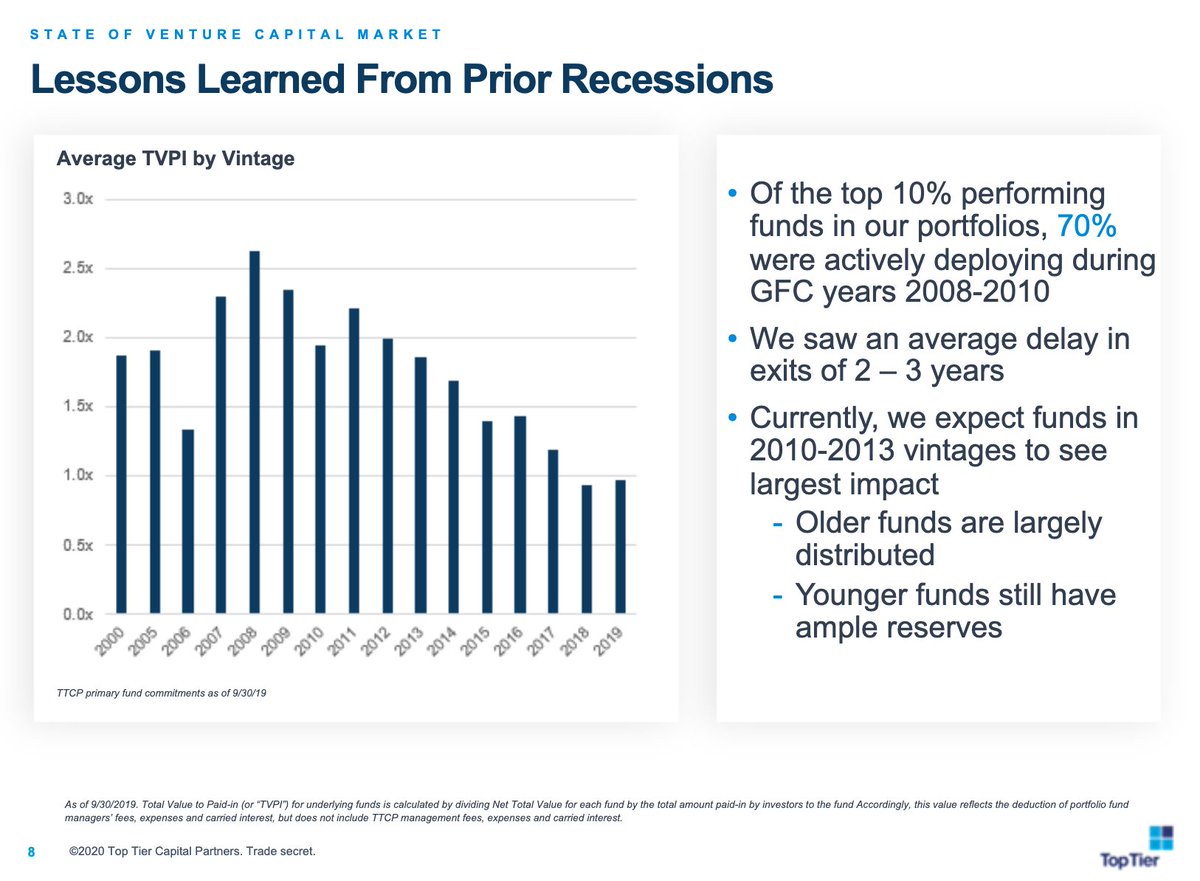
Yesterday, @imperialcollege President @Alicegast wrote a letter in the @FinancialTimes in response to my oped urging a rewrite of the spinout playbook.
I would like to respond here because the letter does not make sense and misses my point. Thread 🔽
I would like to respond here because the letter does not make sense and misses my point. Thread 🔽
https://twitter.com/imperialcollege/status/1394184304448704512
The letter is entitled "Universities need investors to bridge the start-up funding gap". " Prof Gast essentially says that there is *no* problem w/how universities spin out companies, pointing to "750 active companies that raised £800M" at Imperial, i.e. £1m per spinout on avg..
Firstly, aggregate statistics don't tell the real story. Even so, £1m/spinout isn't great. Consider @ycombinator who have driven the standardisation of permissive fundraising terms. Their 3,000 companies have a combined value >$300B, or $100M/co on avg. ycombinator.com/topcompanies/
Next, Imperial takes 5-10% equity as a policy and offers support services such as "enterprise labs, incubators, hack spaces". But none of this really touches on the core IP of a spinout. If one doesn't want any of these services, the % equity tax should be much lower or even 0.
For those founders working through the spinout process and others in the industry who are on the ground working closely with founders, reading PR speak like this suggests a real disconnect with reality. Spinout founders are your customer and they are asking for a better product.
Then Prof Gast writes, "Investors at Imperial can indeed form a company within three months. Our process offers a standard framework to focus negotiation, enabling pragmatic investors to get up and running quickly"
Huh? I'm talking about founders, not investors. I'm confused...
Huh? I'm talking about founders, not investors. I'm confused...
If we're talking about venture building, then I can't see a world in which investors form, fund and launch the spinout and pay 5-10% to the uni for the privilege. They'd instead license IP directly.
If we're talking spinouts, the quote just doesn't make sense. Typo maybe?
If we're talking spinouts, the quote just doesn't make sense. Typo maybe?
Then Prof Gast writes that we must not only focus on spinouts: This work "must be combined with partnerships with established companies and SMEs".
Let me paraphrase:: "we'd prefer to license to incumbents rather than spinouts bc they're less risky and can commercialise better."
Let me paraphrase:: "we'd prefer to license to incumbents rather than spinouts bc they're less risky and can commercialise better."
In the US, the mentality is basically the opposite: Founder-led spinouts are the much more effective way to commercialise early stage technology. I think this is culture and experience talking.
Prof Gast's final point makes least sense from the data: "we need a laser focus on funding gaps". Venture funding in UK/EU is on 🔥.
Recall that spinouts are startups at the end of the day. If they're not attracting $ then there's something wrong them:
ft.com/content/fd0383…
Recall that spinouts are startups at the end of the day. If they're not attracting $ then there's something wrong them:
ft.com/content/fd0383…
What do you mean by "funding gap" for "pre-start-up stage"? @Alicegast, are you saying there's lack of *research* funding?
If so, I think you've missed my point. I'm all for a boost to the >£450M in '19-20 @imperialcollege research funding BUT under a new master spinout policy.
If so, I think you've missed my point. I'm all for a boost to the >£450M in '19-20 @imperialcollege research funding BUT under a new master spinout policy.

Plus! I know of very willing and successful alumni who would be more than happy to help solve this research funding gap for commercially-minded entrepreneurship. But, of course, you'd need a proactive and engaged US Alma Mater-style alumni ecosystem for that. Try it, works great!
I really appreciate your engagement on spinouts @Alicegast - @imperialcollege is *directionally* on the right track with Founders Choice, but it still needs work to be best-in-class. From 5 Imperial spinout data points in spinout.fyi, the net promoter score is -60 :-(
• • •
Missing some Tweet in this thread? You can try to
force a refresh









